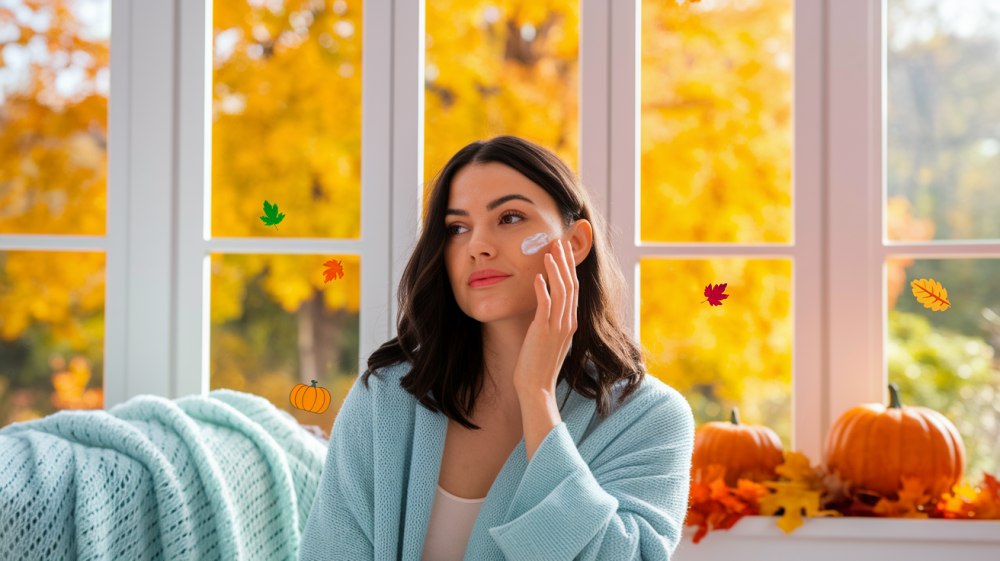
Benefits of Vitamin C for Skin: Science, Glow, and Daily Use Tips

Vitamin C in Skincare: Benefits, Science, and Daily Use Tips
Introduction
Skincare trends come and go, but Vitamin C? That one’s here to stay—and for good reason. Whether you're a skincare minimalist or a full-on 10-step routine enthusiast, this antioxidant earns a permanent spot on your shelf. Why? Because the benefits of vitamin C for skin are backed by both science and glowing reviews.
From boosting collagen to fighting sun damage, Vitamin C is basically the skincare equivalent of a morning green juice—energizing, protective, and essential.
TLDR – Quick Guide
- What does it do?
Brightens skin, evens tone, reduces signs of aging, and protects against environmental damage. - When to use it?
Daily in the morning for best results (always follow with SPF). - How long until results show?
Some users see brighter skin in two weeks; more dramatic improvements in 6–8 weeks. - Who should use it?
Anyone with dullness, dark spots, uneven skin tone, fine lines, or sun exposure. - What products to look for?
Choose serums with 10–20% stabilized L-ascorbic acid or vitamin C derivatives.
Detailed Breakdown
The Science Behind Vitamin C
Vitamin C (a.k.a. ascorbic acid) is a powerful antioxidant. In skincare, that means it neutralizes free radicals—nasty little molecules that break down collagen, cause fine lines, and contribute to hyperpigmentation. The body doesn’t naturally produce Vitamin C, so applying it topically is your best bet for reaping skin benefits.
Top Benefits of Vitamin C for Skin
- 1. Brightens Dull Skin
Vitamin C inhibits melanin production, which helps fade dark spots and gives your complexion a noticeable glow. - 2. Boosts Collagen Production
Collagen = firmer, plumper skin. Vitamin C helps your body produce more of it, reducing fine lines and sagging. - 3. Protects from Sun and Pollution Damage
While it’s not a sunscreen replacement, Vitamin C adds a layer of defense against UVA/UVB rays and environmental stressors. - 4. Speeds Up Healing
Got a breakout or a post-zit scar? Vitamin C helps your skin recover faster by promoting cell turnover and repair. - 5. Evens Skin Tone
Regular use helps reduce redness, blotchiness, and hyperpigmentation for a more uniform complexion.
How to Use It
Step-by-step morning routine:
- Cleanse: Start with a clean slate.
- Tone (optional): If you’re into it.
- Apply Vitamin C serum: Let it absorb for 30–60 seconds.
- Moisturize: Lock in hydration.
- SPF: This is not optional. Vitamin C plus sunscreen is your anti-aging dream team.
Pro tip: Start with a lower concentration (10%) if you’re new to Vitamin C, then level up as your skin builds tolerance.
Choosing the Right Product
Not all Vitamin C products are created equal. Here’s what to look for:
- Stabilized Vitamin C: Prevents oxidation and keeps the formula effective longer.
- L-ascorbic acid: The most potent and well-researched form.
- Opaque, air-tight packaging: Vitamin C breaks down when exposed to light and air.
Things to Avoid Mixing With Vitamin C
- Benzoyl Peroxide: Can cancel out Vitamin C's effects.
- Retinol: Can be too harsh together—use them at different times of day.
- AHAs/BHAs: If you must, alternate days or apply at separate times.
Key Takeaways
- Vitamin C is a powerhouse antioxidant with proven skin benefits—from brightening to firming to protecting.
- Daily use, especially in the morning with SPF, helps you get the most out of it.
- Look for stabilized, high-quality formulas and consistent packaging.
- Results aren't instant—but with regular use, you’ll notice visible improvements in tone, texture, and radiance.
- It's suitable for most skin types and plays well with a simple, smart routine.
FAQs
- Can I use Vitamin C at night?
You can, but it’s most effective in the morning to combat daily environmental damage. Just don’t forget sunscreen. - Will Vitamin C irritate my skin?
Most people tolerate it well, but if you’re sensitive, start with a lower concentration or use it every other day. - Can I layer Vitamin C with niacinamide?
Yes! This combo was once considered controversial, but current research shows they work well together. - Is Vitamin C good for acne-prone skin?
Absolutely. It reduces inflammation, speeds healing, and helps fade post-acne scars. - How do I know if my Vitamin C has gone bad?
If it turns brown or smells funky, toss it. Oxidized Vitamin C won’t harm you—but it won’t help you either.
You Might Also Enjoy...


What Is 'Brotox' and Why Are More Men Choosing It?

The Rise of Male Jawline Enhancement: Non-Surgical Options That Work

Is Blue Light Damaging Your Skin? What You Need to Know

Why Winter Is the Best Time for Laser Treatments


